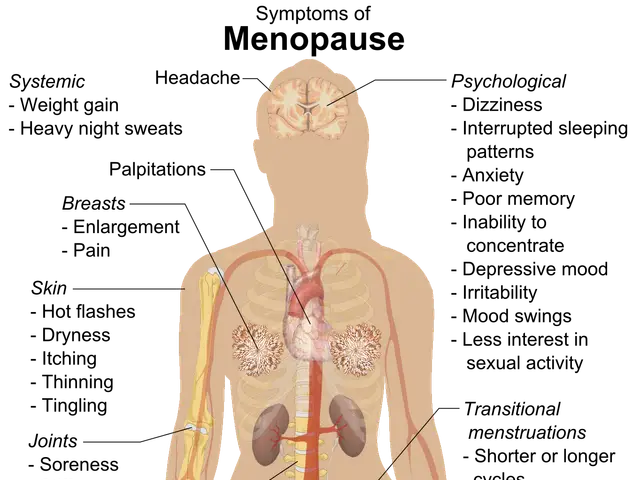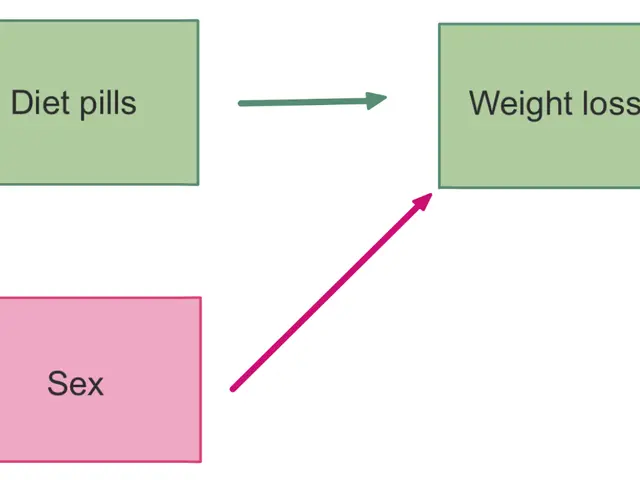Groundbreaking Biotechnology Developments Worth Recognizing:
Boldly Shaping Our World: 13 Revolutionary Biotechnology Advances
In today's technologically-driven era, biotechnology strikes a resounding chord, reinventing health, agriculture, and beyond. Here, we delve into 13 game-changing biotechnology advancements that are dynamically sculpting our world:
- Gene Editing Technologies (CRISPR/Cas9)
- Impact: CRISPR reshapes medical and commercial landscapes by enabling pinpoint edits to genes, treating genetic ailments and boosting crop yield.
- Applications: Potential treatments for genetic disorders, cancer, and infectious diseases.
- Personalized Medicine
- Impact: Customized healthcare rooted in an individual's genetic profile paves the way for more effective treatments and fewer side effects.
- Applications: Cancer, genetic diseases.
- Immunotherapy (CAR-T Cell Therapy)
- Impact: A quantum leap in cancer treatment, CAR-T redesigns T cells to attack malignant cells with unprecedented success.
- Applications: Leukemia, lymphoma.
- mRNA and siRNA Therapeutics
- Impact: mRNA vaccines exhibited remarkable potential during the COVID-19 crisis. siRNA is under exploration for genetic disease treatment.
- Applications: Vaccines, genetic disorders.
- Senolytic Therapy
- Impact: Eliminating senescent cells, tied to aging and age-related diseases, presents an anti-aging opportunity.
- Applications: Anti-aging, age-related diseases.
- Precision Gene Editing in Drug Discovery
- Impact: Streamlined drug development thanks to gene-editing techniques pinpointing functional domains.
- Applications: Oncology, diverse therapeutic areas.
- Multispecific Antibodies
- Impact: Engineered antibodies that can simultaneously target multiple antigens promise more effective treatments.
- Applications: Cancer, autoimmune diseases.
- Adeno-Associated Virus (AAV) Therapies
- Impact: AAV vectors, transporting genes to cells, revolutionize gene therapy for rare genetic diseases.
- Applications: Gene therapy for various rare diseases.
- Biotherapeutic Delivery to the Central Nervous System
- Impact: Innovative methods for delivering biotherapeutics directly to the central nervous system offer superior treatment for neurological disorders.
- Applications: Neurological diseases.
- CRISPR-Based Diagnostics
- Impact: Rapid and accurate diagnostic tools for infectious diseases thanks to CRISPR technology.
- Applications: Point-of-care diagnostics for diseases like COVID-19.
- Cellular Reprogramming
- Impact: Transforming adult cells into induced pluripotent stem cells (iPSCs) opens new avenues for regenerative medicine and tissue engineering.
- Applications: Regenerative medicine, tissue engineering.
- Microbiome Research and Modification
- Impact: Comprehending and modifying the microbiome boosts health outcomes by addressing conditions linked to imbalanced gut flora.
- Applications: Digestive health, autoimmune diseases.
- Agricultural Biotechnology
- Impact: Advancements in agricultural biotech engender resilient crops that resist pests, enhance nutritional value, and optimize yield—crucial for surmounting climate change impacts and bolstering global food security.
These advancements proportion our future, offering hope for tackling diseases and enhancing lives. Biotechnology's ceaseless evolution paves the way for overcoming global challenges and ushering in a sustainable, health-focused future.
Authored by Annette Uy
Enrichment Data:- Biotechnology encompasses remarkable advancements in healthcare, agriculture, and other sectors, promising renewed hope in treating diseases and improving lives.
- CRISPR gene editing technology has revolutionized gene-editing and has paved the way for breakthroughs in treating genetic disorders, diseases, and evolving our understanding of genes.
- Personalized medicine, tailored to an individual's unique genetic makeup, has the potential to revolutionize healthcare, shifting from the standard treatment to a more personalized healthcare experience.
- Bioprinting, the 3D printing of living cells, shows promise for revolutionizing organ transplants by fabricating organs from a patient's cells, significantly reducing the risk of rejection and dependence on donor organs.
- Immunotherapy, used to harness the power of the immune system to fight cancer, offers new hope where traditional treatments fail.
- Synthetic biology, the design and construction of novel biological parts, devices, and systems, holds the potential to create synthetic organisms to perform specific tasks, such as producing sustainable fuels, cleaning pollutants, or developing new drugs.
- Genetically modified crops have been engineered to withstand environmental challenges, resist pests, and improve nutritional content, contributing to food security and more efficient farming practices.
- Stem cell therapy taps into the regenerative potential of stem cells to repair or replace damaged tissue, showing promise for treating conditions like Parkinson's disease, spinal cord injuries, and diabetes.
- Microbiome research offers insights into the role microorganisms play in our overall health, leading to innovations in probiotic therapies and dietary recommendations tailored to individual microbiome profiles.
- Gene therapy, which seeks to correct or prevent disease by altering the genes responsible for a condition, has made significant strides in treating genetic disorders such as cystic fibrosis and muscular dystrophy.
- Biofuels derived from algae present a sustainable alternative to fossil fuels, offering renewable energy with a lower carbon footprint.
- Vaccine development and production have been accelerated by biotechnology, demonstrating the potential through the rapid creation of COVID-19 vaccines.
- Environmental biotechnology employs bioremediation, using microorganisms to break down contaminants, offering an eco-friendly solution for managing waste and restoring ecosystems.
- Agricultural biotechnology entails techniques for modifying crops to resist pests, enhance nutritional content, and optimize yield, providing relief to regions grappling with climate change impacts and supporting global food security.
- Biotechnology's revolutionary advancement, CRISPR gene editing technology, not only redefines the landscape of medical treatments but also boosts crop production by allowing precise edits to genes, potentially alleviating genetic diseases and enhancing crop yield.
- Personalized medicine, built on an individual's genetic profile, offers a tailored and more effective healthcare experience, with applications in treating genetic diseases and cancer.
- In a significant leap for cancer treatment, immunotherapy through CAR-T cell therapy harnesses the power of the immune system to attack malignant cells, demonstrating unprecedented success in leukemia and lymphoma treatments.
- mRNA and siRNA therapeutics, which exhibited remarkable potential during the COVID-19 crisis, hold promise for the treatment of genetic disorders as well as the development of vaccines.
- Eliminating senescent cells, linked to aging and age-related diseases, through senolytic therapy presents an anti-aging opportunity, potentially aiding in the treatment of age-related diseases.
- Precision gene editing in drug discovery enables more efficient drug development by pinpointing functional domains, promising significant advancements in oncology and diverse therapeutic areas.








